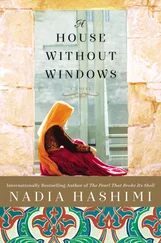But she didn’t finish. She only started. That night Khala Shaima started a story of my great-great-grandmother Shekiba, a story that my sisters and I had never before heard. A story that transformed me.
Shekiba.
Your name means “gift,” my daughter. You are a gift from Allah.
Who could have known that Shekiba would become the name she was given, a gift passed from one hand to another? Shekiba was born at the turn of the twentieth century, in an Afghanistan eyed lasciviously by Russia and Britain. Each would take turns promising to protect the borders they had just invaded, like a pedophile who professes to love his victim.
The borders between Afghanistan and India were drawn and redrawn from time to time, as if only penciled in. People belonged to one country and then the other, nationalities changing as often as the direction of the wind. For Great Britain and the Soviet Union, Afghanistan was the playing field for their “Great Game,” the power struggle to control Central Asia. But the game was slowly coming to an end, the Afghan people ferociously resisting outside control. Chests expanded with pride when Afghans talked about their resilience.
But parts of Afghanistan were taken — little by little until its borders shrank in like a wool sweater left in the rain. Areas to the north like Samarkand and Bukhara had been lost to the Russian Empire. Chunks of the south were chipped away and the western front was pushed in over the years.
In that way, Shekiba was Afghanistan. Beginning in her childhood, tragedy and malice chipped away at her until she was just a fragment of the person she should have been. If only Shekiba had been prettier, something at least pleasing for the eye to gaze upon. Maybe then, her father could have hoped to arrange a proper marriage for her when her time came. Maybe people would have looked at her with an ounce of kindness.
But Shekiba’s village was unforgiving. To get to Kabul, one had to ride one week, crossing a river and three mountains. Most people spent their entire lives in the village, in the green fields surrounded by mountains, walking the dirt roads that connected one compound to another. Their village was in a valley, dark soil nurtured by the nearby river and tall peaks giving a sense of enclosure, privacy. There were a few dozen clans, extended families who had known each other over generations. Most people were related to each other, somehow, and gossip was one way to keep busy.
Shekiba’s parents were second cousins, their marriage arranged by Shekiba’s paternal grandmother. Their family, like many others, lived off the land. Each generation splintered the family’s land so that people would have a place to build a home, if they decided to leave the clan’s main house. Shekiba’s father, Ismail Bardari, was the youngest in his home. His older brothers had married before him and filled the compound with their wives and children.
Seeing there was no room for him and his new bride, Shafiqa, Ismail picked up his chisel and set to work. He was lucky though, in that his father bequeathed him a lot with such fertile soil that his share of crops would be guaranteed. He was the hardest working of his brothers and his father wanted to ensure that the land’s potential would be realized. There were many hungry mouths to feed and a good yield could bring in extra income from the village. His brothers lacked Ismail’s instincts. He had a gift. He knew just the right temperature at which to plant, how often to till the soil and the perfect amount of water to make crops grow. Ismail’s brothers resented him for being their father’s favorite. They pretended to prefer living in the main home. In the end, he surrounded the house with a wall of mud and stones to give it privacy, as a proper Afghan home needed.
Ismail brought his nervous bride to their new home, surrounded by a small plot of land that bordered his brother’s. Standing outside, she could see her in-laws coming and going from the house, their burqas blue spots on a khaki landscape. When the women headed in her direction she would hurry inside and cover herself, embarrassed that her belly was swollen with child. But Shafiqa’s in-laws found her dull and timid, and over time they took less interest in her and her children. The women sighed heavily when they spoke with her and whispered to her husband when she wasn’t near. Had Shekiba’s father been like most other men, he might have heeded those whispers and taken a second wife. But Ismail Bardari was unlike some other men and stayed with the one wife he had, however his mother and sisters felt about her.
Shekiba’s brothers, Tariq and Munis, were the only real link to the clan. Shafiqa watched over Shekiba and her little sister Aqela, nicknamed “Bulbul” because her light, melodic voice reminded Ismail of the local songbird. Tariq and Munis would come and go between their father’s and their grandfather’s homes, acting as couriers of clothing, vegetables and news. The boys were well liked by their grandparents and valued as male heirs. Ismail’s mother, Bobo Shahgul, often said the two boys were the only good thing to come from Shafiqa. The boys overheard many hateful comments but they knew better than to share everything they heard. Shekiba and Aqela didn’t realize how little their father’s family cared about them since they spent their days close at their mother’s side. Sometimes, too close.
A clumsy two-year-old Shekiba changed her life in the blink of an eye. She woke from a midmorning nap and set off to find her mother. Shekiba heard the familiar sounds of peeling in the kitchen and stumbled into the cooking niche. Her small foot caught on the hem of her dress and her arm flailed into the air, knocking a pot of hot oil from a burner top before her mother could reach her. The oil flew out and melted the left half of Shekiba’s cherub face into blistered and ragged flesh.
Shafiqa screamed and doused her daughter’s face with cool water but it was too late. It took months to heal, as Shafiqa diligently kept Shekiba’s face clean, using a compound the local alchemist had mixed for them. The pain got worse as her skin fought to recover. The itching drove Shekiba mad and her mother was forced to wrap her hands in cloth, especially while she picked away at the dead, blackened skin. Fevers came, so high they made the toddler’s body tremble and writhe, and Shafiqa had nothing to offer, nothing she could do but pray at her daughter’s side, her body rocking back and forth, and beseech Allah for mercy.
Bobo Shahgul came to see Shekiba when she heard about the incident. Shafiqa anxiously waited to hear any helpful advice her mother-in-law might offer but Bobo Shahgul had none. Before she left, she suggested Shafiqa pay closer attention to her children and muttered thanks that it hadn’t been one of the boys.
Shekiba’s survival was nothing short of a miracle, another gift from Allah. Though her face healed, she was not the same. From then on, Shekiba was halved. When she laughed, only half her face laughed. When she cried, only half her face cried. But the worst part was the change in people’s expressions. People who saw her profile from the right would begin to smile, but as their view turned the corner, beyond her nose, their own faces would change. Every reaction reminded Shekiba that she was ugly, a horror. Some people would step back and cover a gaping mouth with a hand. Others would dare to lean in, eyes squinted, to get a better look. From across the road, people would stop in their tracks and point.
There. Did you see her? There goes the girl with half a face. Didn’t I tell you she was horrid looking? God only knows what they did to deserve that.
Even her aunts and uncles would shake their heads and cluck their tongues every time they saw her, as if every time they were freshly disappointed and shocked to see what she looked like. Her cousins came up with twisted names for her. “ Shola face,” as her skin resembled the lumpy soft rice. “ Babaloo, ” or monster. That one she hated more than the others, since she too was afraid of the babaloo, the creature that frightened every Afghan child in the night.
Читать дальше












